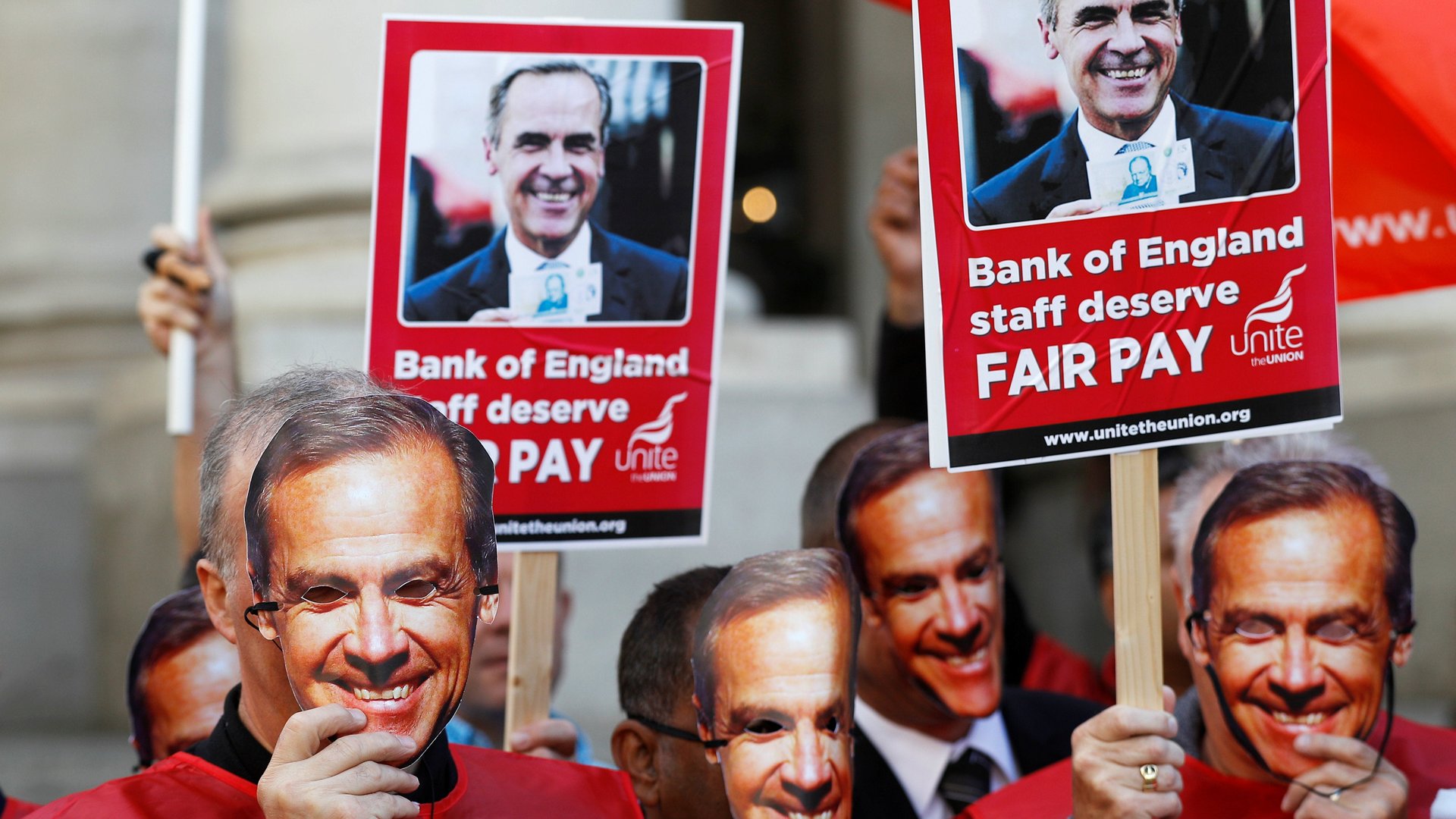There’s a big problem lurking behind Britain’s record-high employment
In the UK, 32.1 million people are in work, that’s 75.3% of the working-age population and the highest employment rate since records began in 1971, according to data released today (Sept. 13) by the Office for National Statistics. Meanwhile, the unemployment rate was the lowest since 1975 and more jobs were added in the three months to July than have been since late 2015. But hold off on the celebrations.


In the UK, 32.1 million people are in work, that’s 75.3% of the working-age population and the highest employment rate since records began in 1971, according to data released today (Sept. 13) by the Office for National Statistics. Meanwhile, the unemployment rate was the lowest since 1975 and more jobs were added in the three months to July than have been since late 2015. But hold off on the celebrations.
This picture of labor market health belies a big problem: UK workers have now experienced six consecutive months of negative wage growth once inflation is accounted for.
For the period of May to July, annual average weekly earnings fell 0.4% once adjusted for inflation. A big part of the problem is rising inflation. In August, consumer prices jumped 2.9% from a year earlier, way above the central bank’s target of 2%. Inflation has been rapidly rising since the UK voted to leave the European Union and the pound fell sharply, which lead to higher import costs.
Still, wage growth itself has been incredibly weak. The latest data from the ONS showed nominal wage growth was just 2.1%. A recent report by the Institute for Public Policy Research, a UK think tank, forecasts that the period between 2008 and 2021, will be the longest period of wage stagnation Britain has experienced since the middle of the 19th century. Even as Britain’s job growth has been strong since the financial crisis, weekly earnings are still £15 ($19.9) less than they were in March 2008.
The pressure on wages—right as the UK braces for the potential economic of Brexit—has led the government to finally lift a cap on public sector pay this week. In 2010, public sector pay was frozen for two years, and since 2013, rises have been capped at 1%. (Some Bank of England staff staged a strike over the pay cap last month.) Now, UK officials will be given “flexibility” to breach the pay gap, while police officers will get a 1% pay rise plus a 1% bonus, and prison officers are getting a 1.7% rise. The decision has been met mostly with opposition as the wage increases are still significantly below inflation and so remain a real-terms wage cut.
There is some hope that squeeze on households will start to dissipate in coming months. The pound has climbed to its highest level in a year against the US dollar, which might push inflation back down. The UK economy is in need of this relief, already declines in household spending dragged Britain’s economic growth to the bottom of the league table against its G7 peers at the start of the year.